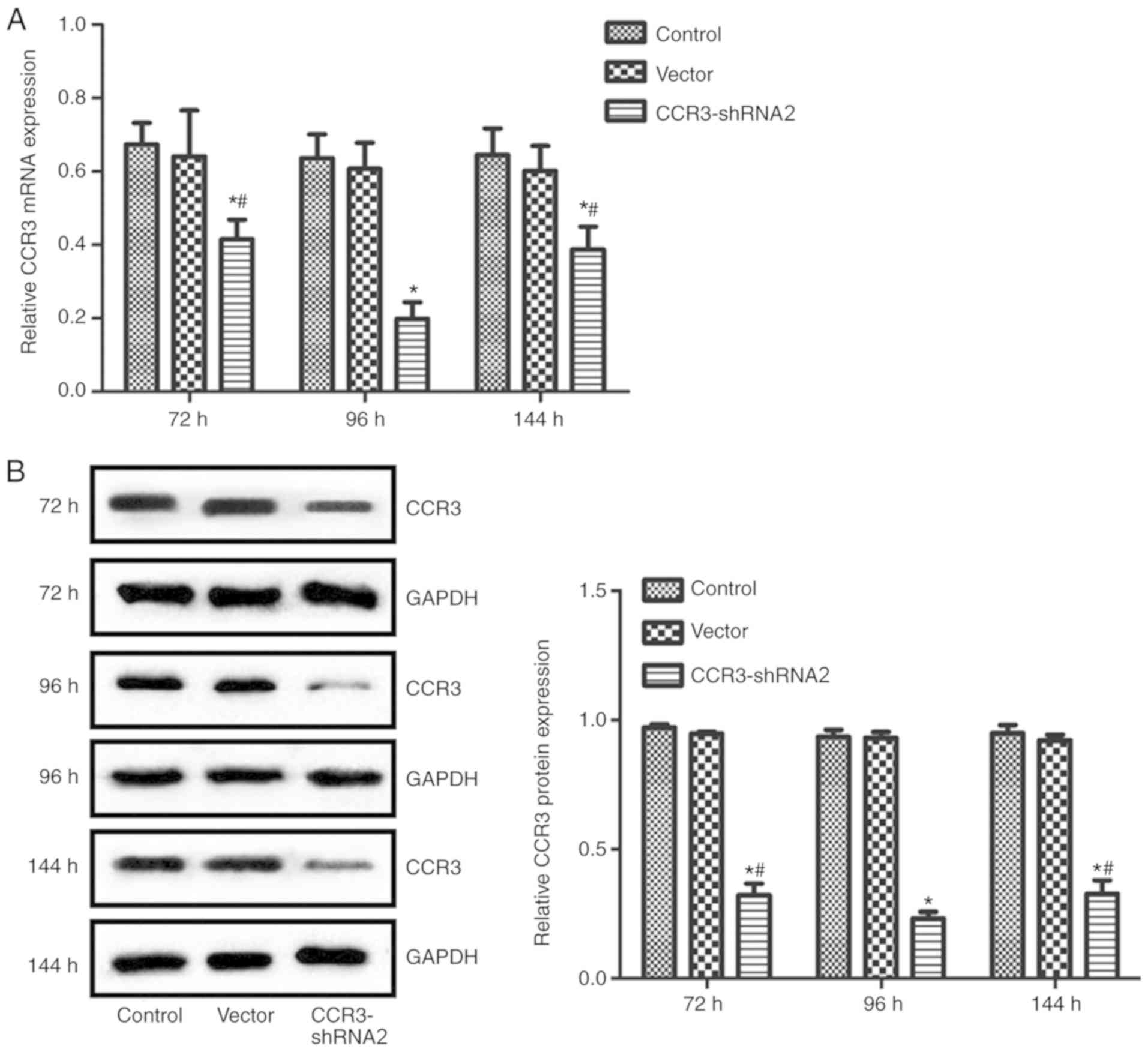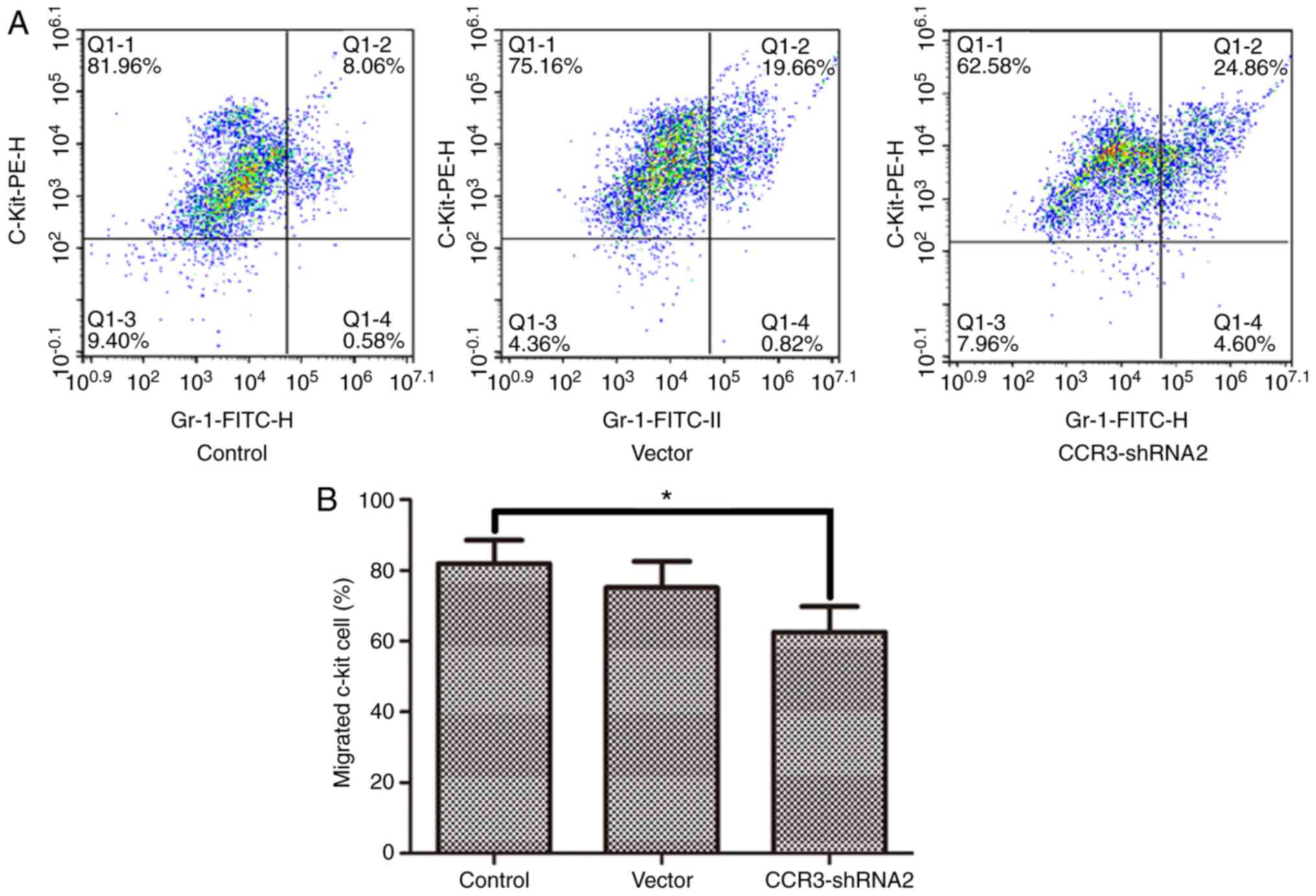|
1
|
Bousquet J, Schunemann HJ, Hellings PW,
Arnavielhe S, Bachert C, Bedbrook A, Bergmann KC, Bosnic-Anticevich
S, Brozek J, Calderon M, et al: MACVIA clinical decision algorithm
in adolescents and adults with allergic rhinitis. J Allergy Clin
Immunol. 138:367–374.e2. 2016.PubMed/NCBI View Article : Google Scholar
|
|
2
|
Utomo BSR, Hatta M, Sirait RH, Pratiwi S
and Massi MN: The role of cytokine interleukin-2, transcription
factor of FoxP3 in the immunological regulation of allergic
rhinitis. Int J Otolaryngol Head Neck Surg. 7:7–19. 2017.
|
|
3
|
Eifan AO and Durham SR: Pathogenesis of
rhinitis. Clin Exp Allergy. 46:1139–1151. 2016.PubMed/NCBI View Article : Google Scholar
|
|
4
|
Im YS, Lee B, Kim EY, Min JH, Song DU, Lim
JM, Eom JW, Cho HJ, Sohn Y and Jung HS: Antiallergic effect of
gami-hyunggyeyeongyotang on ovalbumin-induced allergic rhinitis in
mouse and human mast cells. J Chin Med Assoc. 79:185–194.
2016.PubMed/NCBI View Article : Google Scholar
|
|
5
|
Modena BD, Dazy K and White AA: Emerging
concepts: Mast cell involvement in allergic diseases. Transl Res.
174:98–121. 2016.PubMed/NCBI View Article : Google Scholar
|
|
6
|
Ma J, Song Y, Wu B, Jiang M, Li K, Zhu C
and Wen F: Production of transgenic rice new germplasm with strong
resistance against two isolations of Rice stripe virus by RNA
interference. Transgenic Res. 20:1367–1377. 2011.PubMed/NCBI View Article : Google Scholar
|
|
7
|
Liu Y, Zhu X and Zhang H: Effects of
chemokine receptor 3 gene silencing by RNA interference on
eosinophils. Exp Ther Med. 13:215–221. 2017.PubMed/NCBI View Article : Google Scholar
|
|
8
|
Zhu XH, Liao B, Liu K and Liu YH: Effect
of RNA interference therapy on the mice eosinophils CCR3 gene and
granule protein in the murine model of allergic rhinitis. Asian Pac
J Trop Med. 7:226–230. 2014.PubMed/NCBI View Article : Google Scholar
|
|
9
|
Zhu XH, Liao B, Xu Y, Liu K, Huang Y,
Huang QL and Liu YH: Downregulation of mouse CCR3 by lentiviral
shRNA inhibits proliferation and induces apoptosis of mouse
eosinophils. Mol Med Rep. 15:696–702. 2017.PubMed/NCBI View Article : Google Scholar
|
|
10
|
Andalib A, Doulabi H, Maracy MR, Rezaei A
and Hasheminia SJ: CCR3, CCR4, CCR5, and CXCR3 expression in
peripheral blood CD4+ lymphocytes in gastric cancer patients. Adv
Biomed Res. 2(31)2013.PubMed/NCBI View Article : Google Scholar
|
|
11
|
Brightling CE, Kaur D, Berger P, Morgan
AJ, Wardlaw AJ and Bradding P: Differential expression of CCR3 and
CXCR3 by human lung and bone marrow-derived mast cells:
Implications for tissue mast cell migration. J Leukoc Biol.
77:759–766. 2005.PubMed/NCBI View Article : Google Scholar
|
|
12
|
Collington SJ, Westwick J, Williams TJ and
Weller CL: The function of CCR3 on mouse bone marrow-derived mast
cells in vitro. Immunology. 129:115–124. 2010.PubMed/NCBI View Article : Google Scholar
|
|
13
|
Ochi H, Hirani WM, Yuan Q, Friend DS,
Austen KF and Boyce JA: T helper cell type 2 cytokine-mediated
comitogenic responses and CCR3 expression during differentiation of
human mast cells in vitro. J Exp Med. 190:267–280. 1999.PubMed/NCBI View Article : Google Scholar
|
|
14
|
Khanolkar A, Burden SJ, Hansen B, Wilson
AR, Philipps GJ and Hill HR: Evaluation of CCR3 as a basophil
activation marker. Am J Clin Pathol. 140:293–300. 2013.PubMed/NCBI View Article : Google Scholar
|
|
15
|
Miyazaki D, Nakamura T, Ohbayashi M, Kuo
CH, Komatsu N, Yakura K, Tominaga T, Inoue Y, Higashi H, Murata M,
et al: Ablation of type I hypersensitivity in experimental allergic
conjunctivitis by eotaxin-1/CCR3 blockade. Int Immunol. 21:187–201.
2009.PubMed/NCBI View Article : Google Scholar
|
|
16
|
Zhang WN, Wu K, Zhou HM, Peng QZ, He WT,
Gao Y, Lin XG, Fang ZM and Chen ZH: Cultivation and identification
of bone marrow mast cells in mouse. J Intern Intensive Med.
15:42–44. 2009.
|
|
17
|
Livak KJ and Schmittgen TD: Analysis of
relative gene expression data using real-time quantitative PCR and
the 2(-Delta Delta C(T)) method. Methods. 25:402–408.
2001.PubMed/NCBI View Article : Google Scholar
|
|
18
|
Vink E, Willemien V, Michiel V, Wilko S,
Evert-Jan V, Blankestijn P, Yao Y, Harrison J, Davis G and Sammut
I: Novel invasive strategies in antihypertensive treatment-Renal
sympathetic denervation, baroreflex stimulation. Nephrol Dial
Transplant. 27 (Suppl 2)(ii38)2012.
|
|
19
|
Varga JM, Kalchschmid G, Klein GF and
Fritsch P: Mechanism of allergic cross-reactions-I. Multispecific
binding of ligands to a mouse monoclonal anti-DNP IgE antibody. Mol
Immunol. 28:641–654. 1991.PubMed/NCBI View Article : Google Scholar
|
|
20
|
Bojarová P, Bruthans J and Křen V:
β-N-Acetylhexosaminidases-the wizards of glycosylation. Appl
Microbiol Biotechnol. 103:7869–7881. 2019.PubMed/NCBI View Article : Google Scholar
|
|
21
|
Dahal BK, Kosanovic D, Messinger J,
Fischer Y, Hoffmann K, Antel J, Husen B, Hanke N, Mayet S and
Ghofrani HA: Role of mast cells and chymase in pulmonary vascular
remodeling. Eur Respir J. 38(1524)2011.
|
|
22
|
Zudaire E, Martínez A, Garayoa M, Pío R,
Kaur G, Woolhiser MR, Metcalfe DD, Hook WA, Siraganian RP and Guise
TA: Adrenomedullin is a cross-talk molecule that regulates tumor
and mast cell function during human carcinogenesis. Am J Pathol.
168:280–291. 2006.PubMed/NCBI View Article : Google Scholar
|
|
23
|
Fisher ER: Tissue mast cells. J Am Med
Assoc. 173:171–173. 1960.PubMed/NCBI View Article : Google Scholar
|
|
24
|
Krystel-Whittemore M, Dileepan KN and Wood
JG: Mast cell: A multi-functional master cell. Front Immunol.
6:1–12. 2016.PubMed/NCBI View Article : Google Scholar
|
|
25
|
Galli SJ and Tsai M: IgE and mast cells in
allergic disease. Nat Med. 18(693)2012.PubMed/NCBI View
Article : Google Scholar
|
|
26
|
Ribatti D: The development of human mast
cells. An historical reappraisal. Exp Cell Res. 342:210–215.
2016.PubMed/NCBI View Article : Google Scholar
|
|
27
|
Schmetzer O, Valentin P, Church MK, Maurer
M and Siebenhaar F: Murine and human mast cell progenitors. Eur J
Pharmacol. 778:2–10. 2016.PubMed/NCBI View Article : Google Scholar
|
|
28
|
Desai A, Jung MY, Olivera A, Gilfillan AM,
Prussin C, Kirshenbaum AS, Beaven MA and Metcalfe DD: IL-6 promotes
an increase in human mast cell numbers and reactivity through
suppression of suppressor of cytokine signaling 3. J Allergy Clin
Immunol. 137:1863–1871.e6. 2016.PubMed/NCBI View Article : Google Scholar
|
|
29
|
Bérard F, Ferrier Le Bouëdec MC, Bouillet
L, Reguiai Z, Barbaud A, Cambazard F, Milpied B, Pelvet B, Kasujee
I and Gharbi H: Omalizumab in patients with chronic spontaneous
urticaria nonresponsive to H1-antihistamine treatment: Results of
the phase IV open-label SUNRISE study. Br J Dermatol. 180:56–66.
2019.PubMed/NCBI View Article : Google Scholar
|
|
30
|
Lin H, Zheng CQ, Li J, Yang C and Hu L:
Lentiviral shRNA against KCa3.1 inhibits allergic response in
allergic rhinitis and suppresses mast cell activity via PI3K/AKT
signaling pathway. Sci Rep. 5(13127)2015.PubMed/NCBI View Article : Google Scholar
|
|
31
|
Shao YY, Zhou YM, Hu M, Li JZ, Chen CJ,
Wang YJ, Shi XY, Wang WJ and Zhang TT: The Anti-allergic rhinitis
effect of traditional Chinese medicine of shenqi by regulating mast
cell degranulation and Th1/Th2 cytokine balance. Molecules. 22(pii:
E504)2017.PubMed/NCBI View Article : Google Scholar
|
|
32
|
Zhang N, Li H, Jia JH and He MQ:
Anti-inflammatory effect of curcumin on mast cell-mediated allergic
responses in ovalbumin-induced allergic rhinitis mouse. Cell
Immunol. 298:88–95. 2015.PubMed/NCBI View Article : Google Scholar
|
|
33
|
Gangwar RS, Landolina N, Arpinati L and
Levi-Schaffer F: Mast cell and eosinophil surface receptors as
targets for anti-allergic therapy. Pharmacol Ther. 170:37–63.
2017.PubMed/NCBI View Article : Google Scholar
|





















